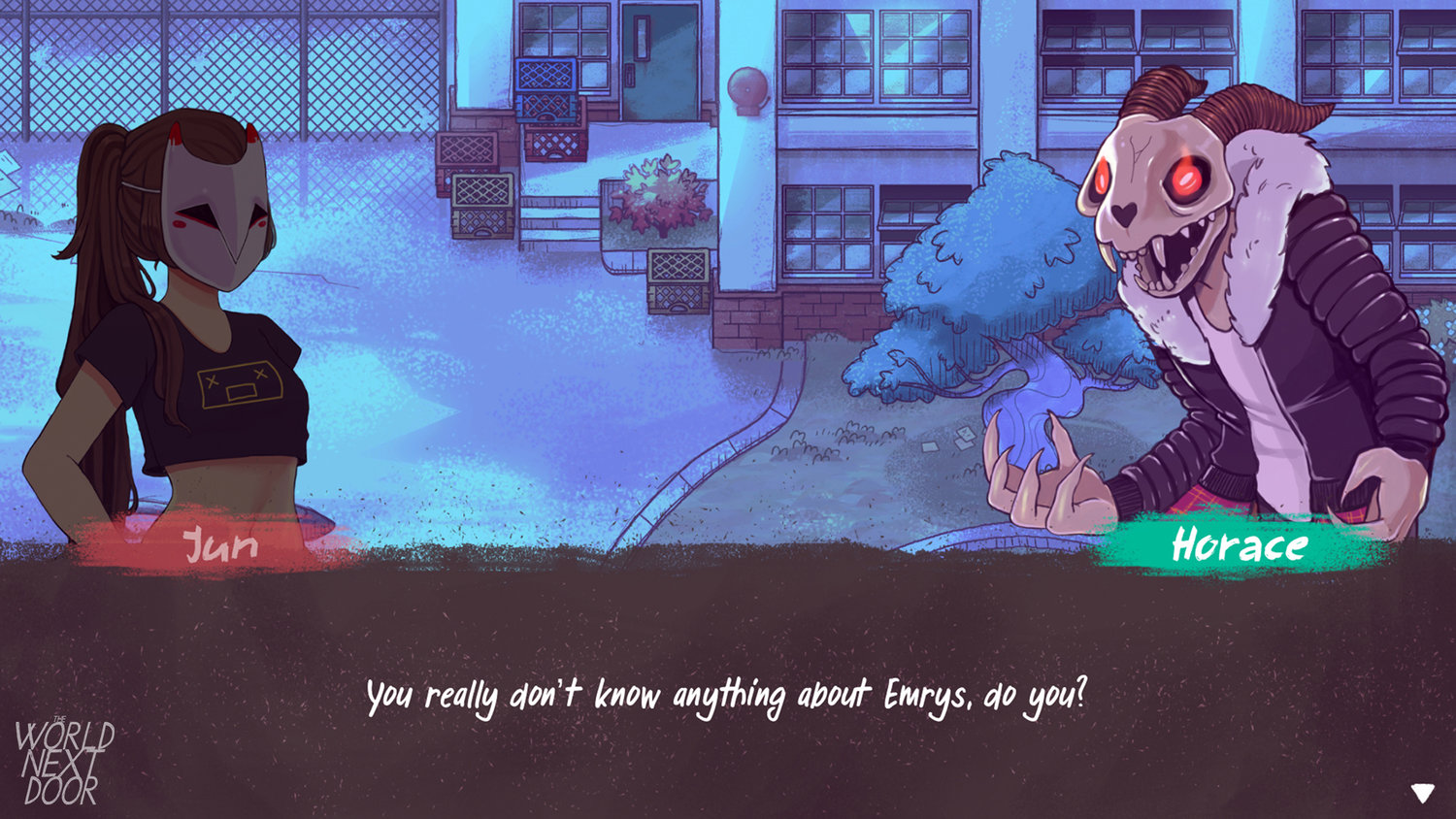Indie studio Rose City Games’s The World Next Door is a quirky mashup of a visual novel and a role-playing game with real-time combat. It has teamed up with studios Crystal Fish Games and Sleep Ninja Games on the effort, which will be the first title that manga publisher Viz Media is taking on as a publisher. Its release date is still to be determined, but the title will debut on PC.
During the Game Developers Conference in San Francisco, I headed over to Viz Media’s office to give the demo a spin. In The World Next Door, you play as Jun, a human who’s visiting the world of monsters from the realm of humans in a kind of ritualistic cultural exchange. Unfortunately, she misses her window to go back home and now she’s trapped — which is a huge problem because humans can’t survive outside their own realm. Her days are numbered if she doesn’t make it back to the human world in time.

Unlock premium content and VIP community perks with GB M A X!
Join now to enjoy our free and premium membership perks.
![]()

![]()